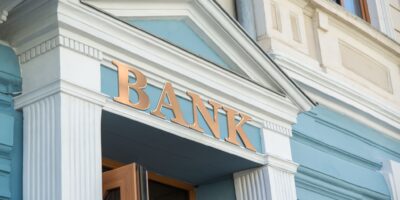
“Milei’s lack of political support in Congress adds to the uncertainty surrounding his ability to successfully pass deregulatory reforms… it is premature to declare victory on the fiscal and inflationary fronts in Argentina.” ~Nicolás Cachanosky
READ MORE
“Even the most faithfully implemented commodity-backed money standard is fundamentally predicated on the integrity and competence of its overseers.” ~Peter C. Earle
READ MORE
“The whole point of expectations-responsive monetary policy is to remove the discretionary and technocratic elements from central banking. Disappointingly but unsurprisingly, the Fed is doing the opposite: doubling down on discretion and technocracy.” ~Alexander W. Salter
READ MORE
“The best we can do is recalibrate models when we get new data. But that’s like driving the car while looking out the rearview window…hardly ideal for knowing how to adjust your steering.” ~Alexander W. Salter
READ MORE
“Central bankers are told that their domestic monetary policy obligations…must be balanced with or even subjugated to currency management practices that accommodate American exporters and competitors more broadly.” ~Mariana F. Trujillo and Peter C. Earle
READ MORE
“It is increasingly clear that the choice to stop rate hikes at the 5.25 to 5.50 policy rate range was at best premature and may ultimately prove insufficient.” ~Peter C. Earle
READ MORE
“We should focus less on who’s allowed to run the Fed and more on what the Fed’s allowed to do in the first place.” ~Alexander W. Salter
READ MORE
“Both long Treasuries and mortgage-backed securities guaranteed by government agencies are in current regulation included as ‘High Quality Liquid Assets.’ But of course they both can and have created plenty of interest rate risk.” ~Alex J. Pollock
READ MORE
“We each owe more than $100,000 as a share of the national debt… Our earning years are subsidizing not our own economic coming-of-age, but retirement and medical benefits for people who navigated a less-challenging wealth-building landscape.” ~Laura Williams
READ MORE
” Fed watchers expect the Federal Open Market Committee will keep rates steady when they meet on March 19-20. In light of the CPI data, that’s a defensible move.” ~Alexander W. Salter
READ MORE
“While tailwinds from normalizing supply chains are cooling goods prices, concerns linger about the sustainability of this trend. In particular, the February CPI readings strongly suggest that the January updraft was not anomalous.” ~Peter C. Earle
READ MORE
“A record $1.3 trillion in credit card debt may be masking a weaker economy than the top-line spending numbers suggest, as consumers accrue debt to maintain a standard of living being crushed by rising prices in housing, groceries, and energy.” ~Spence Purnell
READ MORE250 Division Street | PO Box 1000
Great Barrington, MA 01230-1000
Press and other media outlets contact
888-528-1216
press@aier.org
This work is licensed under a
Creative Commons Attribution 4.0 International License,
except where copyright is otherwise reserved.
© 2021 American Institute for Economic Research
Privacy Policy
AIER is a 501(c)(3) Nonprofit
registered in the US under EIN: 04-2121305